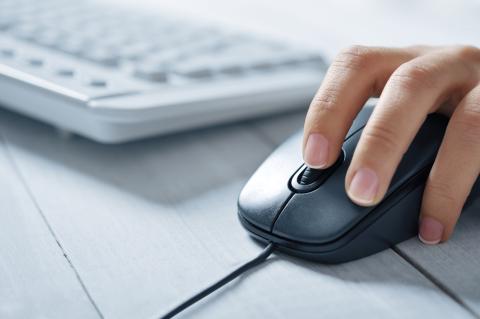La Crosse Encephalitis: Reporting and Surveillance
La Crosse encephalitis virus is a category II reportable condition in Wisconsin. Health care providers and laboratories should report to the patient's local public health department:
- Electronically through the Wisconsin Electronic Disease Surveillance System (WEDSS).
- By calling the Bureau of Communicable Diseases at 608-267-9003.
Reporting should be completed within 72 hours upon recognition of a case.
For more information, visit the Wisconsin Department of Health Services (DHS) Disease Reporting page.
DHS surveillance resources
- Arboviral Infection EpiNet, P-01930 (PDF): An arboviral infection case reporting and investigation protocol for health professionals.
- Arbovirus Management Protocol, P-00894 (PDF): Information for arboviral disease management, including surveillance, testing, reporting, and follow-up, in humans and animals.
- Vectorborne Disease Toolkit, P-01109 (PDF): Information on preparing for and responding to vectorborne disease for local governments, health departments, and citizens in Wisconsin.
Provider resources
La Crosse Encephalitis Symptoms and Treatment: Information on La Crosse encephalitis symptoms, treatment, and clinical evaluation for health care providers from the CDC (Centers for Disease Control and Prevention).
Laboratory diagnosis of La Crosse encephalitis virus most often involves the detection of antibodies against La Crosse encephalitis virus in serum or cerebrospinal fluid (CSF). Diagnostic testing for La Crosse encephalitis virus is not widely available at commercial laboratories. An arbovirus IgM antibody panel can be requested through the Wisconsin State Laboratory of Hygiene (WSLH), which includes testing for West Nile, St. Louis encephalitis, Jamestown Canyon, La Crosse encephalitis, Eastern equine encephalitis, and Powassan viruses. If La Crosse encephalitis virus infection is suspected, concurrent testing for other domestic arboviruses should be considered, since clinical features of these viruses overlap.
The WSLH arbovirus IgM antibody panel screens for evidence of infection through IgM antibody capture enzyme-linked immunosorbent assay or microsphere immunoassay performed on serum or CSF. The WSLH will forward specimens with positive IgM results to CDC for confirmatory testing by plaque reduction neutralization test (PRNT).
The arbovirus IgM antibody panel is available at the WSLH fee-for-service. It is not required for patients’ symptoms to meet the Division of Public Health (DPH) clinical criteria to submit serum or CSF specimens to the WSLH for fee-for-service arboviral screening.
Fee-exempt testing
DPH monitors for La Crosse encephalitis virus as part of our enhanced arbovirus surveillance. Testing for La Crosse encephalitis virus as part of a DPH investigation may be fee-exempt. Contact a vectorborne disease epidemiologist at 608-267-9003 for fee-exempt approval.
Fee-exempt arboviral antibody testing will be offered to clinicians whose patients meet ONE of the following criteria:
- Request for confirmatory testing of positive arboviral IgM and IgG commercial test results (performed at laboratories other than the WSLH).
- La Crosse encephalitis virus is the suspected agent causing illness and testing for other arboviruses (West Nile, Jamestown Canyon, St. Louis, Powassan, and Eastern equine encephalitis) demonstrated negative IgM antibody results.
- The patient has signs and symptoms of meningitis (fever, headache, and stiff neck) or encephalitis (fever, headache, and altered mental status ranging from confusion to coma), or acute flaccid paralysis (AFP) with no other laboratory diagnosis.
- The patient has a diagnosis of Guillain-Barré syndrome and no other laboratory diagnosis.
- The local health department may request fee-exempt testing be performed if the case-patient lacks insurance coverage or the ability to pay.
Instructions for collection and shipping of clinical specimens to the WSLH:
- Collect specimens between three days and 12 weeks after symptom onset for reliable antibody detection. Samples collected less than eight days after illness onset may not demonstrate IgM reactivity due to the time required for the development of an antibody response, and a convalescent sample may be indicated.
- Submit 3-7 mL of serum and/or >1 mL of CSF in sterile, screw-capped vials on cold packs using a WSLH kit #22 or equivalent within five days of collection. It is recommended that a paired serum specimen be submitted with a CSF specimen. Specimens should be triple packaged as a Category B Biological Substance (include UN3373 label).
- Fee-exempt testing submissions must include a WSLH Enhanced Wisconsin Arbovirus Surveillance form provided by a DPH vectorborne disease epidemiologist.
- Fee-for-service testing submissions must include a WSLH CDD Requisition Form B. Please contact the WSLH Clinical Orders at 800-862-1088 or 608-224-4275 to obtain blank copies of WSLH CDD Requisition Form B and to order specimen shipping kits.
- It is essential that the lab requisition form be as complete as possible, including patient name, city, date of birth, specimen type, submitting agency, onset date, signs and symptoms, and collection date. Note: Testing for La Crosse encephalitis virus may be delayed on specimens missing the above data until information is available.
- Ships specimens with appropriate completed form to:
Wisconsin State Laboratory of Hygiene
2601 Agriculture Drive
PO Box 7904
Madison, WI 53718
Customer Service: 800-862-1013
Diagnosis of La Crosse encephalitis virus can be challenging since many of the signs and symptoms of the virus can be similar to other viral infections. Furthermore, La Crosse encephalitis virus IgM antibody cross-reactivity can occur among related viruses, complicating timely diagnosis.
A patient's clinical signs and symptoms, travel history in an area with epidemiologic history of La Crosse encephalitis virus, and risk activities can help to inform a preliminary diagnosis prior to laboratory diagnosis.
There is currently no treatment or vaccine for La Crosse encephalitis. Over-the-counter pain relievers may be given to relieve the symptoms.
In severe cases, patients may need to be hospitalized to receive supportive treatment.
Questions about illnesses spread by mosquitoes?
Contact us by phone at 608-267-9003 or fax 608-261-4976.

